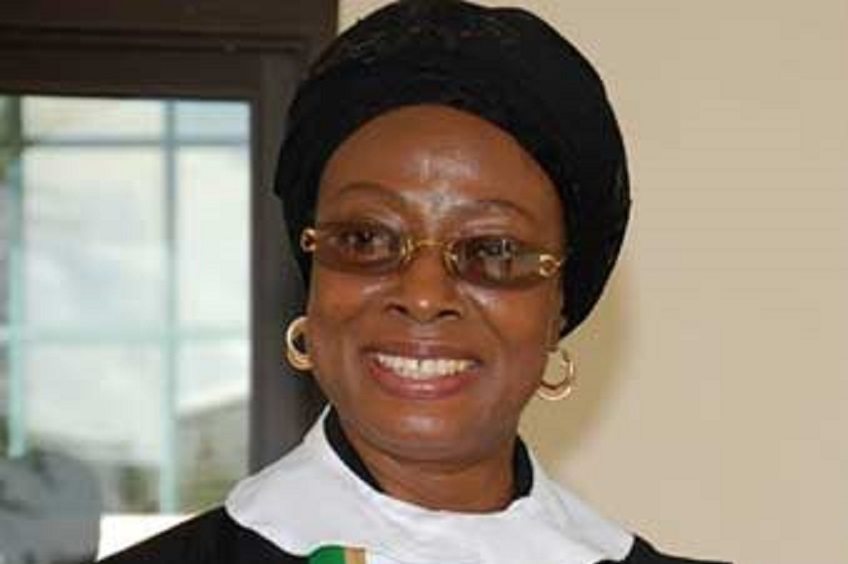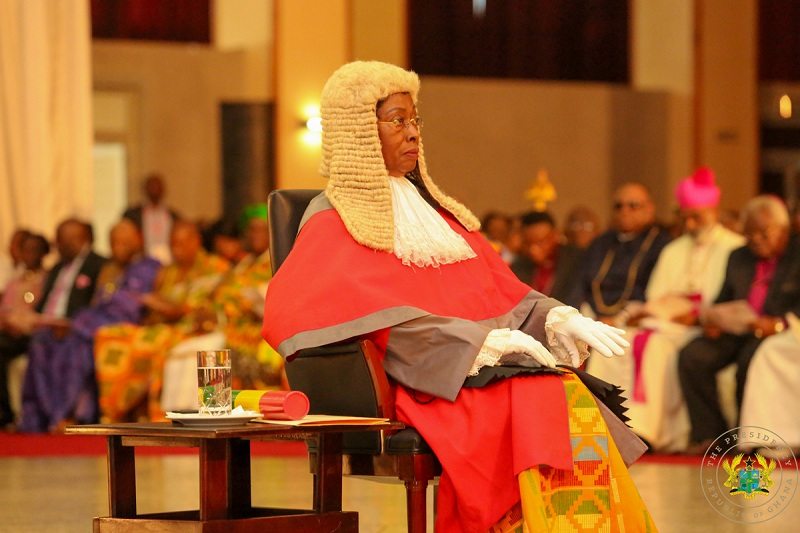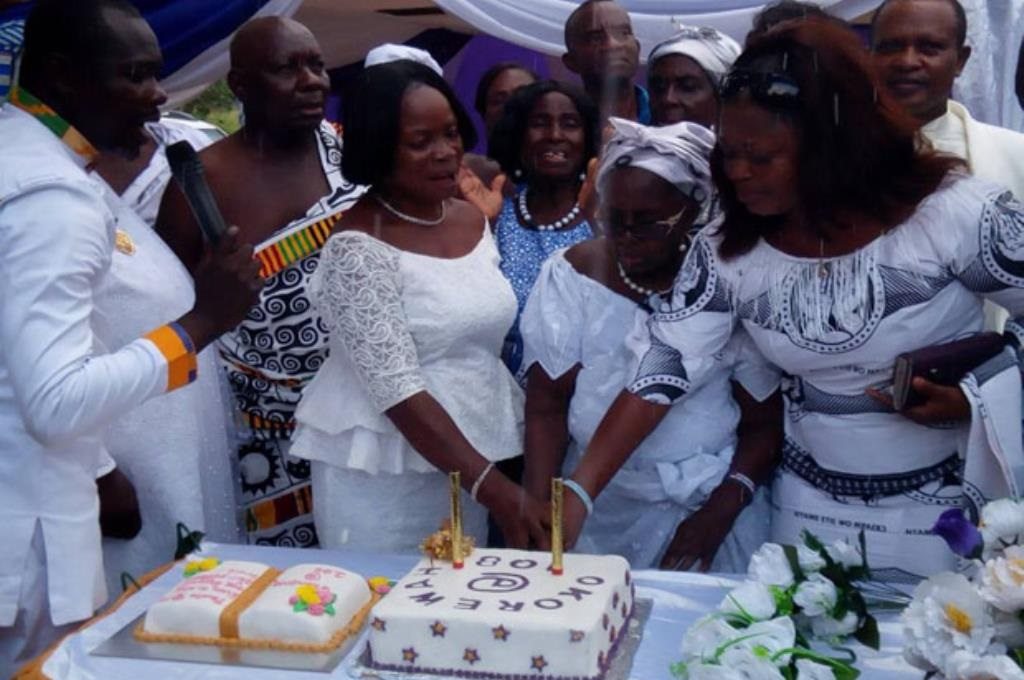The appointment is in accordance with Article 144 (1) of the 1992 Constitution which states that “the Chief Justice shall be appointed by the President, acting in consultation with the Council of State and with the approval of Parliament”. President Akufo-Addo made the disclosure on Friday, 12th May 2017, at the Flag Staff House. This was after the Council of State approved the President’s choice of Madam Akuffo as the desired person to occupy the national position. During the announcement, Nana Addo expressed strong confidence in Sophia Akuffo, stating that he has known her for close to 40 years. Ms. Akuffo’s nomination is to be presented to the House of Parliament for onward approval when the house resumes by the end of May. If her appointment stands, she will succeed outgoing Chief Justice Georgina Theodore Wood who will retire in June. She will also be the 5th and 13th Chief Justice in the fourth republic and in the history of Ghana, respectively. Justice Sophia Akuffo was selected from 12 most senior judges of the federation who were all qualified for the Chief Justice position. Prior to Akuffo’s selection, there were rumors that Justices Jones Dotse and Anin Yeboah are the president’s targets for the high calling. But on the contrary, Sophia who has been a Judge of the Supreme Court of Ghana for over two decades was picked, as she is the next most senior judge in all the 12. The most senior, Justice William Atuguba was not picked as his retirement is very close. Justice Anin Yeboah rather earned the position of FIFA’s Disciplinary Committee Chairman.
Profile of Justice Sophia Akuffo
Justice Sophia A.B. Akuffo is a senior judge of the Supreme Court, with high international experience in the judicial field. She had her Masters Degree in Law at the Harvard University, United States, and trained as a lawyer under Nana Akufo-Addo. Ms. Sophia Akuffo is a member of the Governing Committee of the Commonwealth Judicial Education Institute and the Chairperson of the Alternative Dispute Resolution Task Force. She is also on the Disciplinary Committee of the General Legal Council and has held membership of several organizations, including the Committee of the Commonwealth Judicial Education Institute. In 2002, Justice Akuffo authored a research work on ‘The Application of Information & Communication Technology in the Judicial Process – the Ghanaian Experience’, a presentation to the African Judicial Network Ghana. She has been working as one of the judges at the African Court on Human and Peoples Rights since 2006 and is currently serving as the court’s Vice President after being elected in 2014. Akuffo has been a justice of the Supreme Court since 1995. See Also: Ruth Ama Gyan-Darkwa Biography and Facts about The 13-yr-old KNUST Maths Student
Interesting facts about Justice Sophia Akuffo
- Justice Sophia Akuffo was born on December 20, 1949 (aged 67).
- She is from Akropong-Akuapem in the Eastern Region of Ghana; a mother of one (a daughter) and a grandmother of two.
- She is the second most senior Justice on the Supreme Court bench after Justice William Atuguba and has been a Judge of the Supreme Court of Ghana for many years. 4. Akuffo presided over the infamous Montie three case in 2016.
- Irrespective of the fact that she’s President Nana Akufo-Addo’s distant cousin, her qualifications are described as noble, making her appointment one which is well deserved.
- Outlines of her personal qualities include:
Hard work, Discipline, Capacity for detailed research, Intimate knowledge of the law, Independence of mind and spirit, Honesty and integrity, Deep-seated respect for the rule of law and for the best traditions of the legal profession, Abiding belief in the sovereignty of Almighty God.
7. Her vision as the Chief Justice is to establish a strong judicial system hinged on integrity, technology and improved infrastructure. So far, she has launched a pilot solar power system at the Winneba High Court and the service is expected to extend to ten other courts. Akuffo envisages the solarisation to be a cost-saving measure for the judicial service since the cost of energy obtained from the National Electricity Grid continuous to rise.




